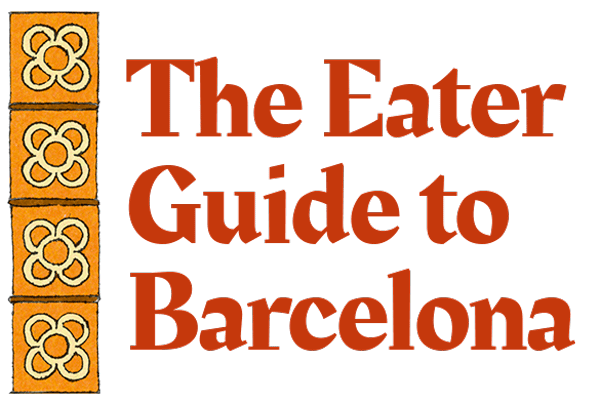It’s around 9 p.m. in the Plaça dels Àngels, and people are perching on the cement barrier in front of the main entrance to the Museu d’Art Contemporani de Barcelona, though they’re not there for the art. Drawn by the local skate culture, they mingle every evening amid the distant hum of traffic and the percussive soundtrack of skaters — the buzz of wheels on uneven pavement, the hard cracks of landings, and the scuffling noises of failed jumps and tricks. With crowds come the vendors, armed with six-packs of beer and trays of samosas wrapped in plastic.
Among the many things street vendors sell in Barcelona, from souvenirs to counterfeit handbags, consumables are a rarity. In the city, and throughout Spain, street vending without a permit is illegal. Recent laws have also outlawed purchasing from vendors, though sellers are fined about 180 times as often as buyers. The licensing laws are meant to ensure vendors and shopkeepers pay taxes, and to channel sales to those that do. So many vendors without permits — for whom exact numbers are difficult to establish, but they are typically among the city’s most economically precarious residents — limit their domains to busy tourist attractions and surrounding areas like the Plaça dels Àngels. There, vendors can reasonably depend on a crowd to sell to — and get lost in when the police come to confiscate their wares.
:no_upscale()/cdn.vox-cdn.com/uploads/chorus_asset/file/19783065/Rashid31.jpg)
:no_upscale()/cdn.vox-cdn.com/uploads/chorus_asset/file/19783210/Rashid4.jpg)
:no_upscale()/cdn.vox-cdn.com/uploads/chorus_asset/file/19783219/Rashid18.jpg)
The most common is beer, followed by bottled water, and finally, samosas, which are popular and well-known among locals. Samosas are by far the easiest Pakistani prepared food to find here, in plastic trays lined with paper towels to soak up the grease in Pakistani-run convenience stores, not to mention in pretty much every doner kebab place around town. In Barcelona, a general knowledge and acceptance of samosas is linked to the number of Pakistani immigrants in the city — at just over 23,000 residents, they’re the second-largest immigrant group here, trailing those from Italy and followed by populations from France, China, and Colombia.
The Pakistani immigration surge began in the 1970s; as of 2011, half of all Pakistanis legally residing in Spain lived in Barcelona. According to Javed Ilyas Qureshi, president of the Association of Pakistani Workers of Catalonia, in the 2009 report “Pakistan, in Search of an Identity,” about 95 percent of Barcelona residents hailing from Pakistan came to Catalunya to find a better standard of living — leaving behind the sort of unmanageable economic situations where renting a place to live costs twice as much as a month’s salary. And while many Pakistanis in Barcelona work in or own neighborhood institutions like greengrocers and computer cafes, many others make a precarious living selling souvenirs, beers, bottled water, and samosas in the streets.
:no_upscale()/cdn.vox-cdn.com/uploads/chorus_asset/file/19783129/Rashid52.jpg)
:no_upscale()/cdn.vox-cdn.com/uploads/chorus_asset/file/19783137/Rashid43.jpg)
:no_upscale()/cdn.vox-cdn.com/uploads/chorus_asset/file/19783153/Rashid49.jpg)
Rashid, 38, moved to Barcelona from Islamabad nearly nine years ago. When I spoke to him, he said he sells samosas for a euro ($1.15) apiece in the Plaça dels Àngels to afford an apartment he shares with several roommates in the Gothic Quarter; if he’s able, he sends money back to his family in Pakistan. He only learned how to make samosas after arriving in Barcelona. “I spend 2 to 3 hours making them, and then I work here 4 to 5 hours selling,” he says. “Every day I make 20, and I sell 10 to 15. Normally all of them, or not very many, or five. When it rains, you don’t work because there aren’t any people.
“Today is Saturday, I brought 40, and in the last two and a half hours I’ve been here I’ve sold six or seven and ya está [it’s done].” At the end of the day, if Rashid has leftover samosas, he gives them away or he eats them himself, although he admits to occasionally getting sick of them. In the winter months when fewer people are out, there isn’t much demand for samosas; that demand dried up completely during Barcelona’s strict confinement. The night before I first spoke to him (in February 2020, prior to the COVID-19 lockdown), Rashid said he’d made 8 euros ($9).
During the city’s confinement, it became impossible to sell samosas in the MACBA plaza. That’s when Rashid says he started delivering samosas instead. Post-lockdown, when people were allowed to move more freely again, Rashid started an Instagram business, delivering his samosas and catering Pakistani buffets for groups of 10 or more. And now that the plaza is back to its pre-pandemic state, he’s also back to selling samosas there. “Every day, I’m here,” he says, “trying to make a living.”
:no_upscale()/cdn.vox-cdn.com/uploads/chorus_asset/file/19784937/Rashid37.jpg)
Originally from the Midwest, Chris Ciolli has lived in Barcelona since 2005. A writer and translator, she’s contributed to local and international publications such as BUST magazine, Afar, Miniguide, and Fathom. Gerard Moral is a Barcelona born and based photographer specializing in portrait, travel and lifestyle photography.
/cdn.vox-cdn.com/uploads/chorus_image/image/70046677/Rashid56.0.jpg)
